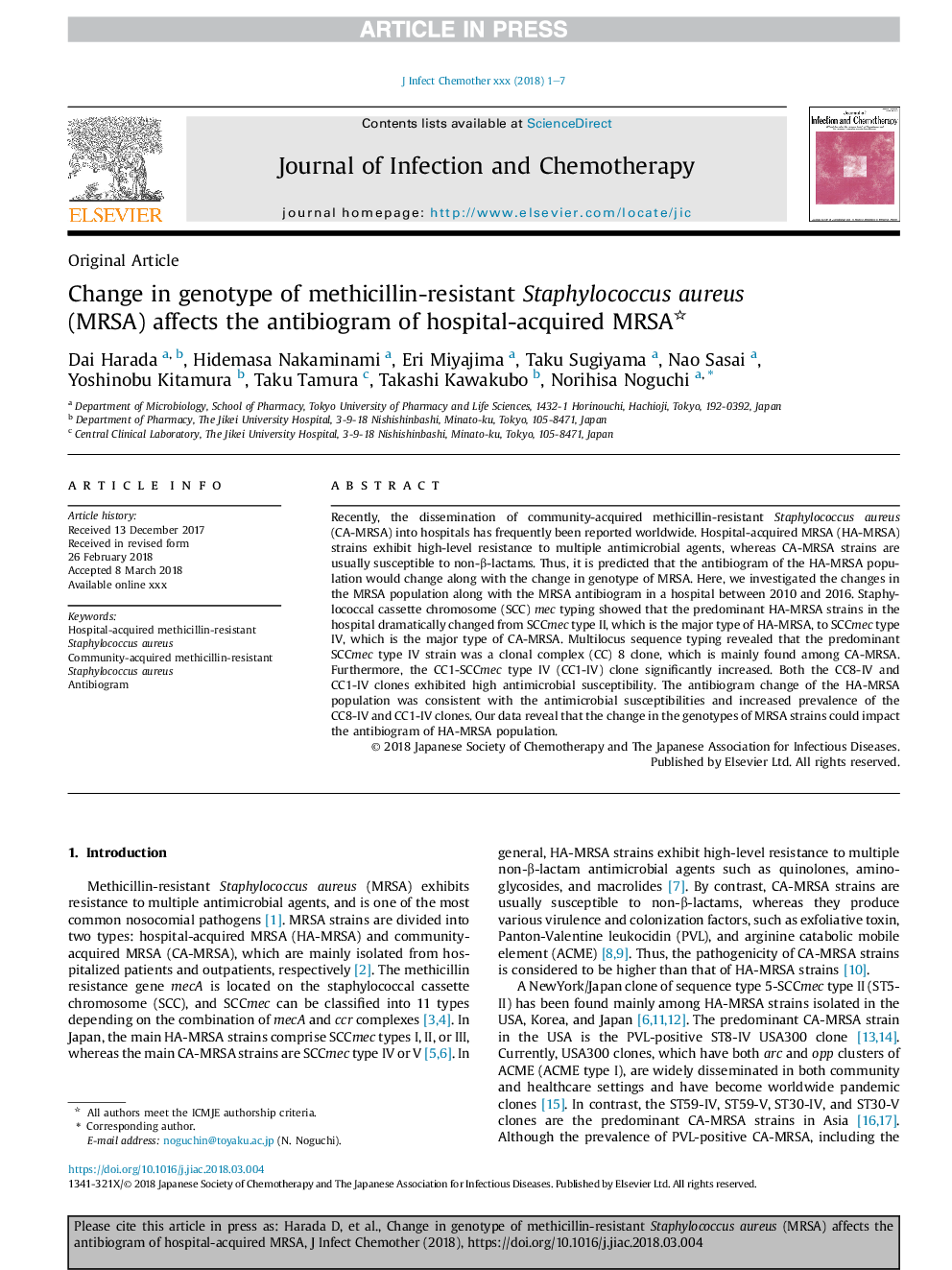| Article ID | Journal | Published Year | Pages | File Type |
|---|---|---|---|---|
| 8740608 | Journal of Infection and Chemotherapy | 2018 | 7 Pages |
Abstract
Recently, the dissemination of community-acquired methicillin-resistant Staphylococcus aureus (CA-MRSA) into hospitals has frequently been reported worldwide. Hospital-acquired MRSA (HA-MRSA) strains exhibit high-level resistance to multiple antimicrobial agents, whereas CA-MRSA strains are usually susceptible to non-β-lactams. Thus, it is predicted that the antibiogram of the HA-MRSA population would change along with the change in genotype of MRSA. Here, we investigated the changes in the MRSA population along with the MRSA antibiogram in a hospital between 2010 and 2016. Staphylococcal cassette chromosome (SCC) mec typing showed that the predominant HA-MRSA strains in the hospital dramatically changed from SCCmec type II, which is the major type of HA-MRSA, to SCCmec type IV, which is the major type of CA-MRSA. Multilocus sequence typing revealed that the predominant SCCmec type IV strain was a clonal complex (CC) 8 clone, which is mainly found among CA-MRSA. Furthermore, the CC1-SCCmec type IV (CC1-IV) clone significantly increased. Both the CC8-IV and CC1-IV clones exhibited high antimicrobial susceptibility. The antibiogram change of the HA-MRSA population was consistent with the antimicrobial susceptibilities and increased prevalence of the CC8-IV and CC1-IV clones. Our data reveal that the change in the genotypes of MRSA strains could impact the antibiogram of HA-MRSA population.
Related Topics
Life Sciences
Immunology and Microbiology
Applied Microbiology and Biotechnology
Authors
Dai Harada, Hidemasa Nakaminami, Eri Miyajima, Taku Sugiyama, Nao Sasai, Yoshinobu Kitamura, Taku Tamura, Takashi Kawakubo, Norihisa Noguchi,
